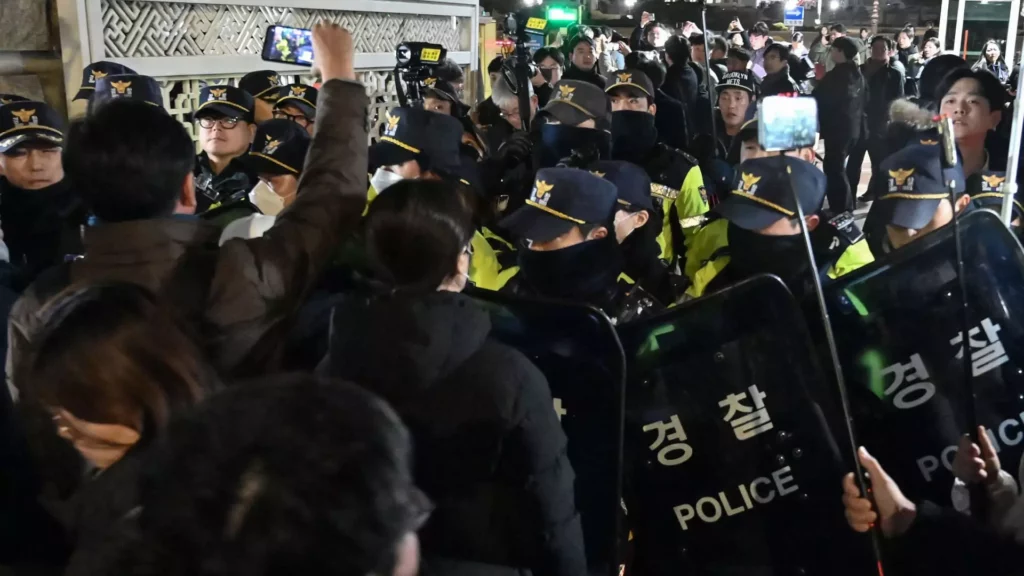On a dramatic Tuesday, the financial landscape of South Korea shifted significantly in response to President Yoon Suk Yeol’s unexpected declaration of martial law. This move, rooted in claims of an emergency scenario, sent shockwaves through both local and international markets, particularly affecting South Korean stocks in the United States. The announcement raised alarm over the potential for political turmoil in the world’s 13th largest economy, sparking fears of an era of instability reminiscent of South Korea’s tumultuous past.
The iShares MSCI South Korea ETF, a critical barometer for international investors, saw a precipitous drop—plummeting nearly 7% at one point, striking a new 52-week low. The fallout was felt across various sectors, with significant declines in notable companies like Korea Electric Power and Coupang, both of which witnessed drops of 5% and 6%, respectively. KT Corporation and Posco also reflected this downturn, experiencing declines of 3% and over 6%. However, after the South Korean National Assembly convened quickly to overturn Yoon’s decree, losses moderated to approximately 2.4% by early Wednesday.
In a remarkable show of political resolve, 190 out of the 300 National Assembly lawmakers swiftly gathered within hours of the martial law announcement to vote for its reversal. This swift response indicates a clear pushback against President Yoon’s increasingly authoritarian stance, suggesting a robust commitment among lawmakers to maintain democratic principles in the nation. Yoon’s accusations against opposition parties, branding them as sympathizers of North Korea controlling parliament, were seen as an attempt to de-legitimize dissent. His failure to clearly articulate the implications of martial law on governance only further fueled anxieties among the populace and stakeholders alike.
This situation marks the first martial law declaration by a South Korean leader since 1980, reminding many of a more oppressive era. The martial law curtails political activities, branding those that could “incite social disorder” as taboo. This restrictive stance invites criticism both domestically and from the international community, drawing attention to the fragility of South Korea’s democratic framework. Public sentiment is clearly skeptical, as citizens recall the country’s struggles to achieve democratic governance after decades of authoritarian rule.
The Korea Exchange announced an emergency meeting to assess potential responses, raising questions about the stability of the financial markets moving forward. Amidst all this, the U.S. dollar surged by 1.9% against the South Korean won, highlighting the increasing demand for safe-haven assets amidst uncertainty. Stakeholders and investors will now be watching keenly for further developments, as the stability of South Korea’s economy—and its democratic institutions—hang in the balance. The unfolding crisis serves as a stark reminder of the delicate interplay between governance, economy, and public trust in the region.

